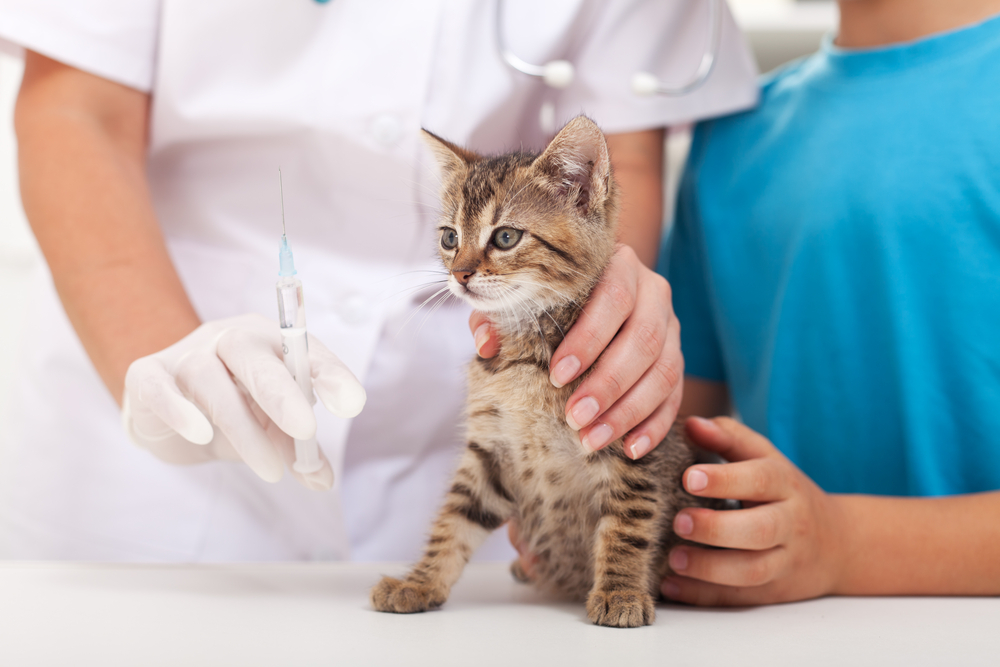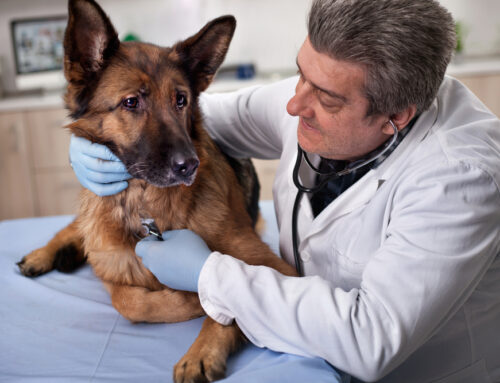Dogs and cats have been breeding without human assistance for millennia, but as veterinary medicine research uncovers more about preserving canine and feline health, pet owners are stepping in to help manage pet breeding. While dogs are more commonly bred to achieve a specific purpose, such as a certain character or physical trait, cats can also be selectively bred.
However, left to their own devices, dogs and cats would breed indiscriminately, causing greater animal overpopulation and leading to poor genetic health and excessive disease transmission. Stray animal overpopulations can also affect people through disease and parasite transmission. To help manage disease and parasite transmission, our Guam Pet Hospital team provides tips on how you can implement your four-legged friend’s safe breeding practices.
#1: Keep your pet current on vaccinations
Infectious disease runs rampant through Guam, largely because of our large stray pet population. In addition, our climate fosters pathogen spread and growth. Fortunately, vaccines are highly effective at preventing disease, or at least vastly minimizing infectious disease manifestations. When you ensure your pet receives regularly scheduled vaccinations, their immune protection against disease remains high. In turn, if your pet has a litter, they pass on their immune protection to their babies.
Help your pet remain protected and healthy year-round by scheduling their annual wellness visit to ensure they receive their appropriate vaccinations. If your pet gives birth, schedule their offsprings’ vaccination appointments at regular intervals to ensure they are also protected from infectious diseases and parasites. Keep in mind that certain breeds may require specific vaccinations, so contact our Guam Pet Hospital team to determine the appropriate vaccination schedule for your pet and her babies.
#2: Deworm your pet regularly
Intestinal parasites can leach away your pet’s health, and potentially prove fatal if they develop a severe infection. If your pregnant pet has intestinal parasites, she can struggle to retain enough nutrition to support herself and her growing young adequately. In addition, some parasites can pass through the mother’s placenta or milk, infecting her puppies or kittens. Pets can contract parasitic infections at any age, so if a mother is not dewormed, she may pass intestinal parasites to her newborn babies through poor hygiene practices.
To prevent your pet from developing an infection, you should ensure they receive a monthly heartworm preventive that also provides intestinal parasite control. However, to eliminate any lingering parasites and ensure the mother and babies are in the best possible health, we strongly recommend your pregnant pet receive an additional deworming before breeding.
#3: Feed your pet a high-quality diet

To ensure your pet has a strong health foundation, you must feed them high-quality nutrition. Expectant mothers especially need a well-balanced diet to ensure their offspring grow and develop well, and to provide adequate energy to fuel their pregnancy and nursing. Your pet’s nutritional needs may change during their pregnancy and after giving birth, so check with Dr. Bob to ensure you are feeding your four-legged friend appropriately.
#4: Budget for the unexpected veterinary emergency
Pets get into all sorts of trouble by following their noses, especially when their hormones lead the way. If your pet remains intact (i.e., unspayed or unneutered), ensure you have money budgeted to pay for potential emergency treatment, such as for dogfight wounds, uterine infections, or a Cesarean section (i.e., C-section). Pets can struggle to give birth unassisted, and if a puppy or kitten becomes stuck or the mother becomes too tired to push, emergency care is needed to save the mother’s and her babies’ lives. However, keep in mind that despite emergency surgery, a mother or her babies may do poorly and pass away, especially without receiving prompt veterinary treatment during a difficult birth. In addition, after a C-section, the mother and her babies may need hospitalization—an additional expense—until they regain their strength.
#5: Spay or neuter your pet at the appropriate age
Far too many homeless pets wander Guam’s streets, spreading disease and parasites that can infect your own pet and your family. Ideally, you should have your pet spayed or neutered to avoid contributing to the pet overpopulation problem currently flooding our country. If you are not planning to breed your pet to promote better health and temperament within their breed, consider having them spayed or neutered at the appropriate age.
As a pet owner, you are responsible for helping prevent the spread of parasites and diseases. To help prevent inappropriate breeding and keep your pet healthy, have them spayed or neutered. Contact our Guam Pet Hospital team to schedule your pet’s preventive care visit, and to discuss the best age for their sterilization surgery.








Leave A Comment